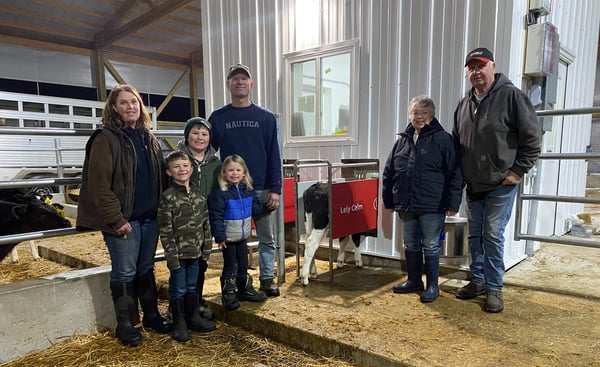Christina Carmichael is the fifth generation of her family to operate Cedar Grove Farm in Reed City, MI. The operation was a dairy up until 2019 when Christina's family decided to take a different direction and venture into the world of dairy beef farming.
Making the Switch to Dairy Beef Farming
Christina currently operates the farm with her parents, Jerry and Lynn Mitchell, along with the help of her husband and kids. A few years ago, the family reached a turning point where they decided that selling the milking cows and transitioning to a dairy beef farm would be the most viable option to keep the business going. Working closely with Michigan State University Extension, Cedar Grove Farm now feeds up to 700 dairy beef steers and raises them up to finishing size.
When they first started raising dairy beef cattle, Christina was feeding up to 85 head of calves in traditional hutches, which represented a huge physical strain and time commitment. Christina was also struggling to juggle her kids' busy sports schedules with feeding calves, and would oftentimes be out in the barn until 9 p.m. The family started looking into options that would make feeding calves easier and increase their overall flexibility. After touring several different operations, Lely automatic calf feeding was the system that caught their attention.
"We went with Lely feeders because it can feed more than I can do out here. A lot of guys can feed three times a day and I just couldn't," said Christina. "The feeders could feed a lot more efficiently than I ever could."
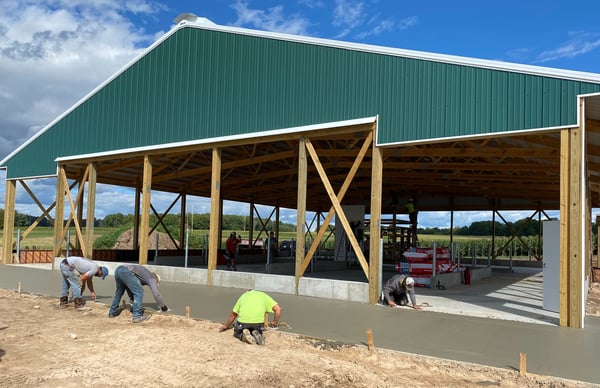
Automatic Calf Feeder Improves Animal Welfare
In November of 2021, the new 70' x 80' barn was completed at Cedar Grove Farm that now houses two Lely Calm automatic calf feeders in its milk room. The building includes four pens with 24 calves apiece, with each Lely Calm feeding two pens. The facility also features double-hung curtains with tube ventilation and a weather station that is connected to the curtains to help them automatically move up and down for optimized calf comfort.
The learning curve for automatic calf feeding was relatively simple for Christina, and her local Lely Center, Hi-Tech Dairy Supply, Inc., was very helpful in training her to operate the machines. She is also catching on when it comes to the utilization of the Lely Calms' data for calf health monitoring.
"It's a whole different management - I take a glance at the pen in the morning to spot check calves. Then I walk in the milk room and look at the data on the computer modules and keep an eye out to check on what they've eaten. If a calf hasn't eaten much, I know he's not doing great and I need to go look at him," said Christina. "Whereas in the hutches, you put a bottle in and if a calf didn’t come up to drink you knew something was wrong."
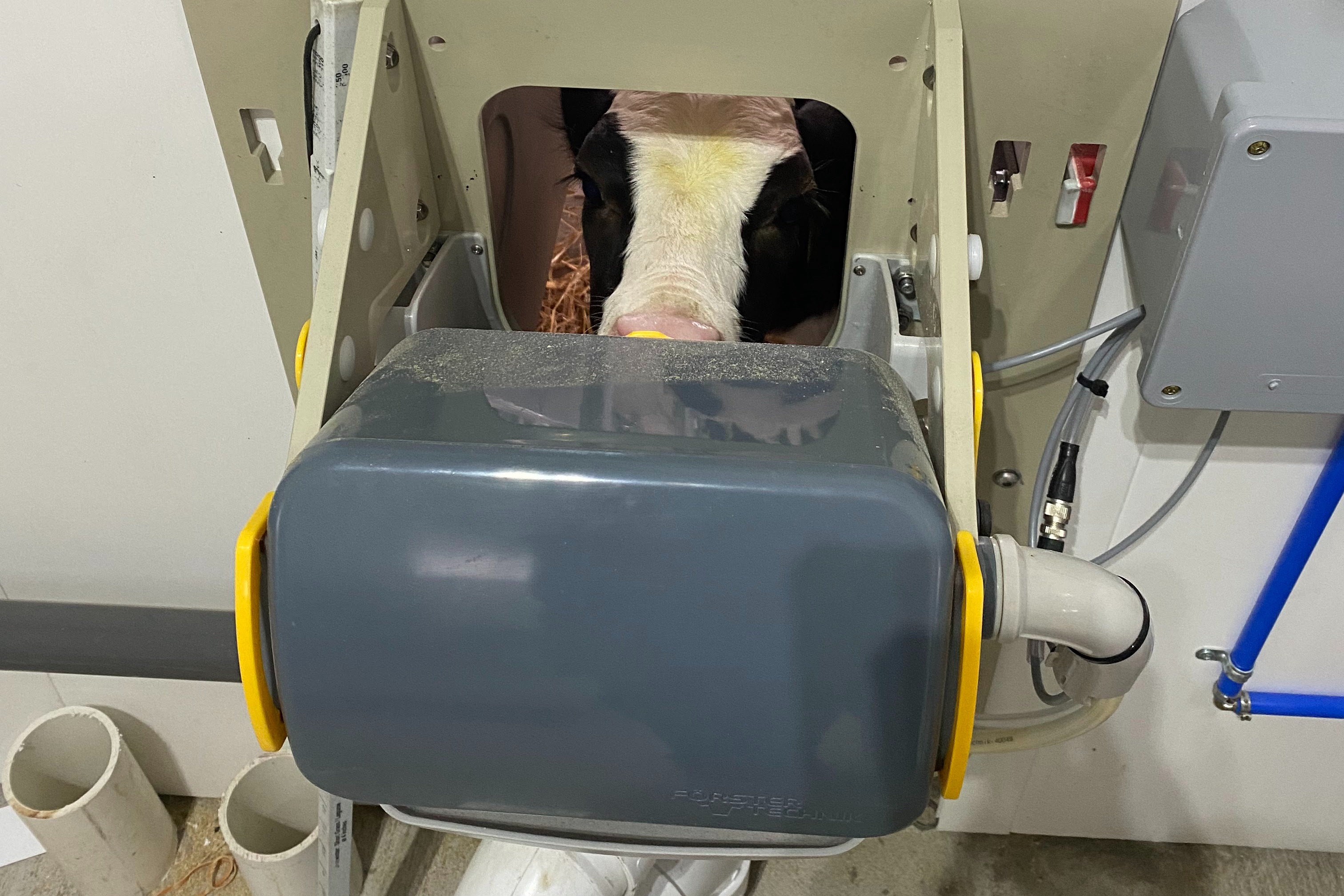 |
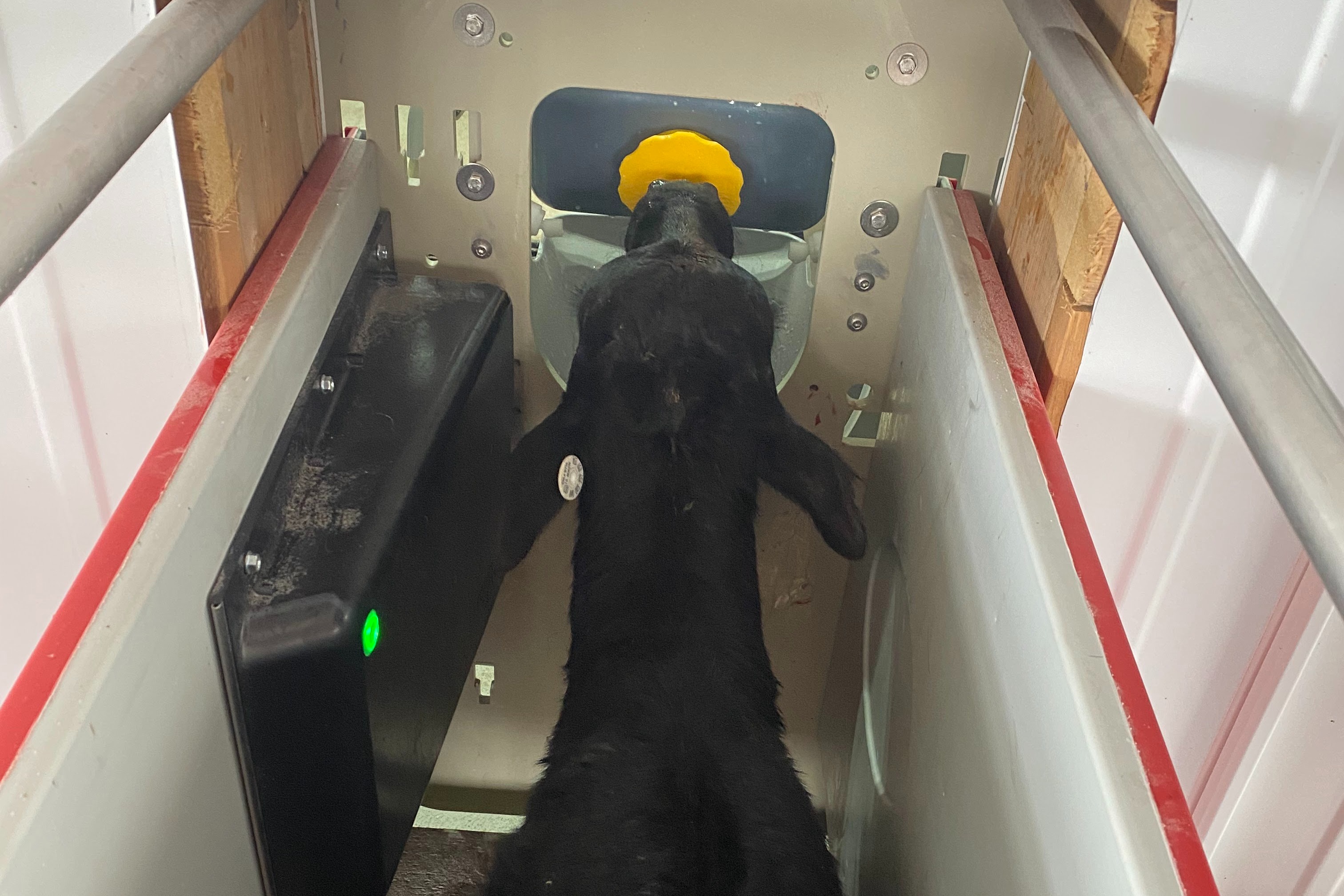 |
The calves also caught on pretty quickly, and Christina puts all new calves onto the Lely Calms after they've had their colostrum.
"It's really amazing how quickly they do catch on," Christina said.
The Lely Calms are set to automatically increase the amount of feed as the calf grows, and eventually maximizes at 8 L per day. Christina is also really excited about the social aspect of the group housing the Lely Calms allow.
"The calves will get up and run around and play, and are able to learn that social aspect," said Christina. "My calves are so much calmer. My daughter will scream and they won't go ballistic. In the calf hutches, they would freak out. It's amazing to see their social development early on."
Automatic Feeding Offers Better Flexibility
On top of enhanced calf welfare, Christina has also seen a big difference in labor requirements with automatic calf feeding. With the hutches, she used to spend up to five hours on chores in both the mornings and evenings. With the Lely Calms, she spends one to two hours on chores in the morning and around 45 minutes at night. Christina is very pleased with the added flexibility in her schedule, and now feels considerably less tied down to the farm
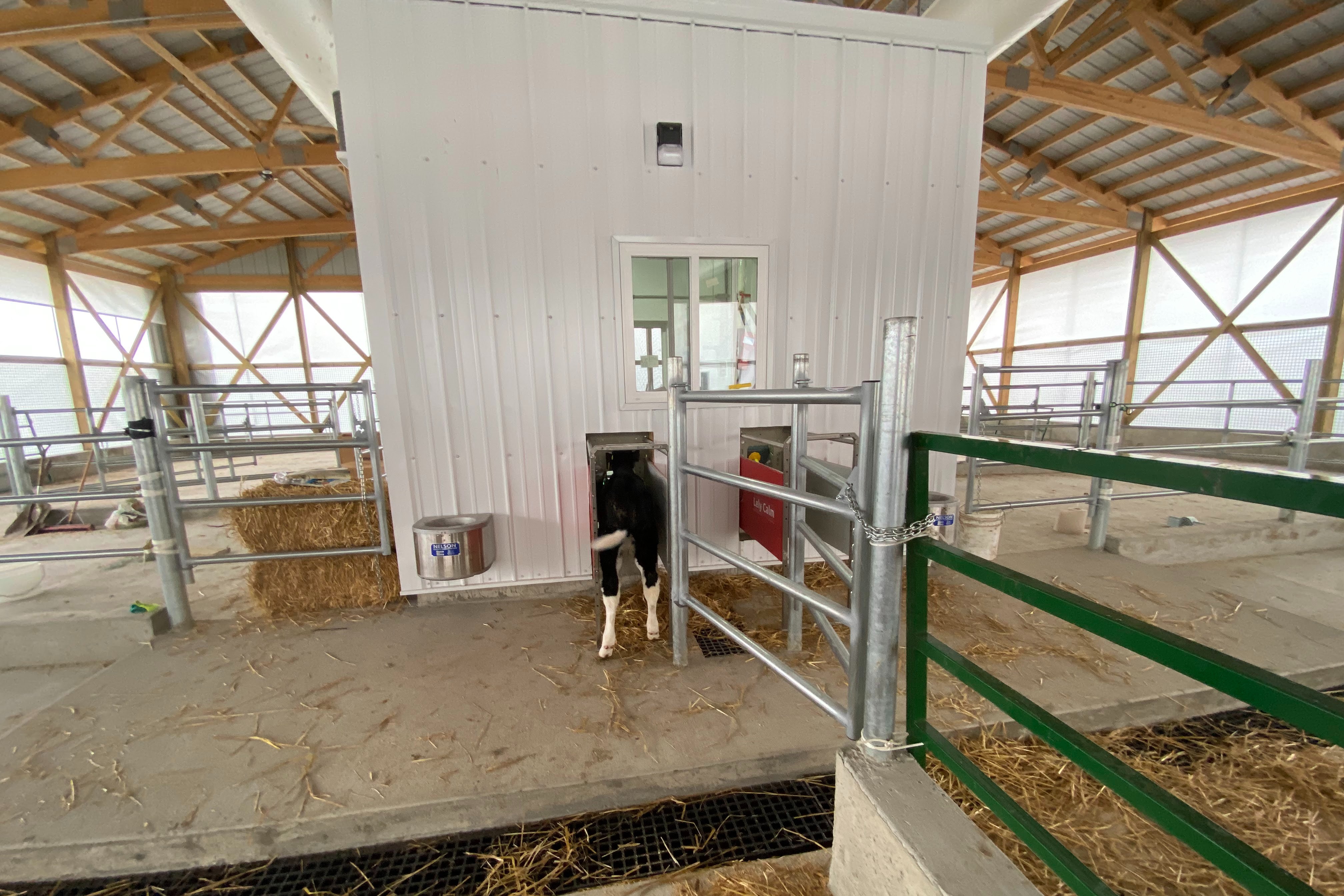 |
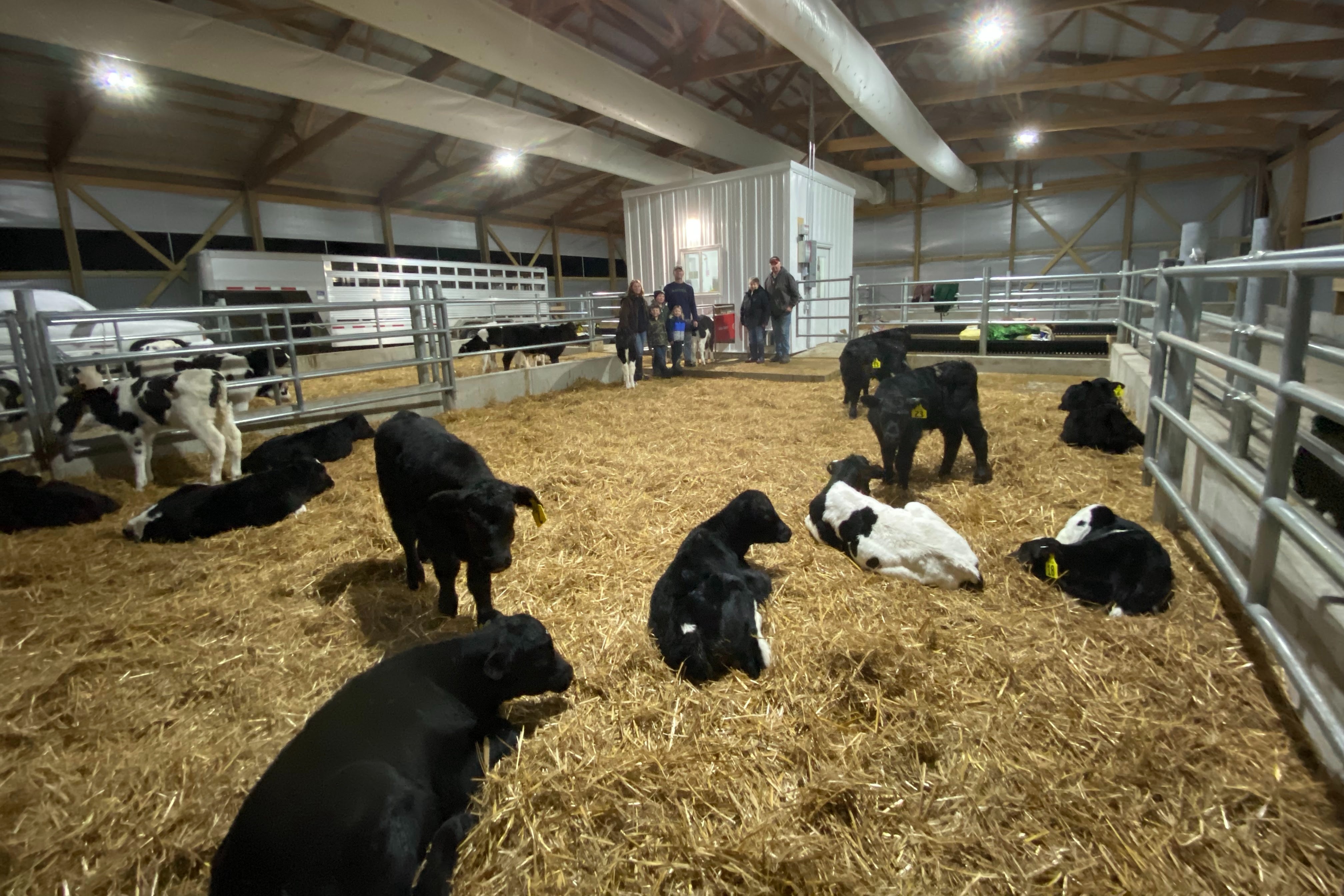 |
The family is about a month in with the Lely Calms, and Christina is excited to see how the new equipment ultimately impacts their results.
"I'm hoping to see faster growth rates," Christina said. "It takes us about 18 months to finish out steers. With the Lely feeders, I'm hoping to put more weight on our calves early in the game so I can maybe even optimize their time spent on feed and get them out faster."
Lely North America is very happy to welcome Christina and her family to the Lely family, and can't wait to hear more about how Lely automation continues to impact their operation!
We visited Christina and Cedar Grove Farm in 2022. The farm had completed a new group calf-feeding facility. Click below to learn more about how Lely Calms help save labor and time for the dairy while increasing feed efficiency for the calves.

